| Coach | NA |
| Venue | Estadio Miguel Sancho |
Racing Cordoba predictions
Predictions for Racing Cordoba: See upcoming and historic predictions for Racing Cordoba below.
Disclaimer: Past performance does not guarantee future results. Betting involves risk; only wager what you can afford to lose. Always gamble responsibly.
Racing Cordoba latest results
| 12/04 | - | ||
| 07/04 | 1 - 0 | ||
| 31/03 | 1 - 0 | ||
| 25/03 | 0 - 1 | ||
| 17/03 | 2 - 0 |
Primera Nacional standings
| Rank | Team | MP | W | D | L | GF | GA | GD | Pts |
|---|---|---|---|---|---|---|---|---|---|
| 1 |
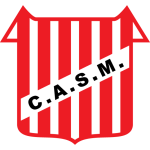 San Martin Tucuman
San Martin Tucuman
|
10 | 6 | 1 | 3 | 13 | 5 | 8 | 19 |
| 2 |
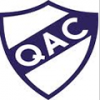 Quilmes
Quilmes
|
9 | 5 | 4 | 0 | 10 | 2 | 8 | 16 |
| 3 |
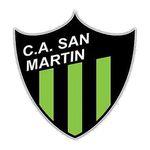 San Martin S.J.
San Martin S.J.
|
10 | 4 | 4 | 2 | 10 | 9 | 1 | 16 |
| 4 |
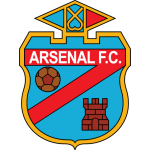 Arsenal Sarandi
Arsenal Sarandi
|
10 | 4 | 3 | 3 | 10 | 9 | 1 | 15 |
| 5 |
 All Boys
All Boys
|
9 | 3 | 5 | 1 | 7 | 5 | 2 | 14 |
| 6 |
 Agropecuario
Agropecuario
|
9 | 3 | 4 | 2 | 12 | 10 | 2 | 13 |
| 7 |
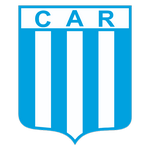 Racing Cordoba
Racing Cordoba
|
9 | 3 | 4 | 2 | 8 | 7 | 1 | 13 |
| 8 |
 Alvarado
Alvarado
|
9 | 3 | 4 | 2 | 8 | 7 | 1 | 13 |
| 9 |
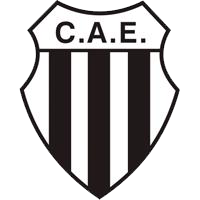 CA Estudiantes
CA Estudiantes
|
9 | 3 | 4 | 2 | 5 | 5 | 0 | 13 |
| 10 |
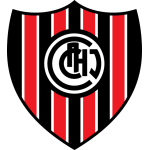 Chacarita Juniors
Chacarita Juniors
|
10 | 3 | 3 | 4 | 9 | 11 | -2 | 12 |
| 11 |
 San Miguel
San Miguel
|
9 | 1 | 7 | 1 | 5 | 5 | 0 | 10 |
| 12 |
 Tristan Suarez
Tristan Suarez
|
9 | 2 | 4 | 3 | 10 | 11 | -1 | 10 |
| 13 |
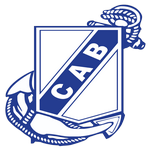 Guillermo Brown
Guillermo Brown
|
9 | 2 | 4 | 3 | 8 | 9 | -1 | 10 |
| 14 |
 Talleres Remedios
Talleres Remedios
|
9 | 2 | 4 | 3 | 6 | 7 | -1 | 10 |
| 15 |
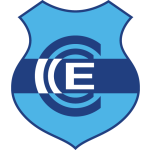 Gimnasia Jujuy
Gimnasia Jujuy
|
9 | 3 | 1 | 5 | 7 | 9 | -2 | 10 |
| 16 |
 Ferro Carril Oeste
Ferro Carril Oeste
|
10 | 2 | 4 | 4 | 12 | 15 | -3 | 10 |
| 17 |
 Patronato
Patronato
|
10 | 2 | 4 | 4 | 6 | 12 | -6 | 10 |
| 18 |
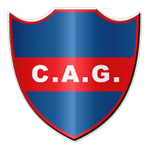 Club Atlético Güemes
Club Atlético Güemes
|
9 | 1 | 6 | 2 | 5 | 6 | -1 | 9 |
| 19 |
 Deportivo Maipu
Deportivo Maipu
|
9 | 2 | 1 | 6 | 7 | 15 | -8 | 7 |
About Racing Cordoba
Racing Club Córdoba, often simply known as Racing de Córdoba, is a prominent football club based in Córdoba, Argentina. Founded on April 14, 1924, the club has a rich history that spans almost a century. It is known for its passionate fan base and its distinctive blue and white striped jerseys, which have become a symbol of the club's identity.
Racing de Córdoba's home ground is Estadio Miguel Sancho, a stadium with a capacity of approximately 15,000 spectators. The club has a fierce rivalry with Instituto Atlético Central Córdoba, another football club in the city, and their matches, known as the "Clásico Cordobés", are among the most anticipated events in the Argentine football calendar.
In its early years, Racing de Córdoba was a dominant force in local leagues. It wasn't until 1967 that the club joined the Argentine Football Association, entering the Torneo Regional, a tournament that provided access to the National Championship. The club's first major success came in 1980 when it won the Torneo Regional and gained entry into the National Championship, where it finished in an impressive fourth place.
Racing de Córdoba's most successful period was in the late 1980s. In 1989, the club won the B Nacional (second division) championship, earning promotion to the Primera División, the top tier of Argentine football. This marked the first time in the club's history that it competed at the highest level of Argentine football. Despite facing relegation after just one season, this period remains a highlight in the club's history.
Over the years, Racing de Córdoba has produced several notable players who have gone on to have successful careers both in Argentina and abroad. These include Oscar Dertycia, a striker who played for the Argentine national team and several European clubs, and Daniel "El Rengo" Diaz, a talented midfielder who had a successful career in the Argentine Primera División.
Despite facing financial difficulties and periods of poor performance on the pitch, Racing de Córdoba has remained a beloved institution in the city of Córdoba. The club's supporters, known as the "Academia Cordobesa", are renowned for their unwavering loyalty and passionate support, regardless of the team's fortunes.
Today, Racing de Córdoba continues to compete in the lower tiers of Argentine football, striving to return to the glory of its past. The club's youth academy remains a vital part of its operations, nurturing the next generation of football talent. Despite the challenges, Racing de Córdoba remains a symbol of pride and passion in Argentine football, embodying the spirit of the city it represents.















